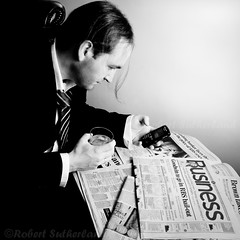I intended to post this a few months ago when I first saw the episode but with moving house I didn’t get around to it. Recently I was challenged about the role of preaching within a service and it came instantly back to mind.
Someone recently postulated that all preaching is ineffective and that all preaching should have a cease and desist order placed upon it as it privileges the few and doesn’t speak to the many. I have to say that I agree that some preachers can be accused of this. However, this isn’t my experience of the majority of preachers I know.
It was also said that not one preacher would ever look to professionals within other professions for advice on how to effectively disciple people. Again this is a little unfair on the preachers I know. Having been a teacher who has since become an ordinand, I used the opportunity to not only combine the theories behind the two within practical theology. I actually based my dissertation upon the interaction between different teaching and learning styles and different church services and liturgical styles. And this is what I love about the emerging church, in theory there is a time and place for everyone to engage with God. As a kinaesthetic boy who is easily distracted there is a place for me.
I find it a great sadness that unfortunately those within the emerging church often fall foul of the very thing to which they react. To deny the place of preaching for some excludes those who learn aurally in exactly the same way that removing the smooth stone excludes those who need to touch. This is where I find that the phrase ‘mixed economy’ is so vital within the Christian faith. Unfortunately this inclusivity and the valuing of others who are following Jesus is embraced by so few. Those who are spoken to by the ‘mystery of the liturgy’ deny the validity of the faith of those who are spoken to by the ‘preaching of the word’. In turn they deny the validity of those who worship ‘when the music starts and the spirit falls’ or the ‘emergent discussion group’ that starts in the pub. It is with huge irony that the emergent post-modernists then round upon all others and question their validity. It is with this in mind that I am sadly reminded of the declaration at Greenbelt by a prominent figure within the emerging church that “the emerging church will kill of the institutional church – and that is no bad thing”. Is the emerging church to become another ‘movement’ within Christianity that is destined to become as political as all that has preceded it or does it genuinely have something new to offer in its radical discipleship, radically inclusivity and radical valuing of all?
And so I return to Lynette and her experience of a traditional preaching service (five hymn sandwich anyone). I too stand here before you as a member of the congregation who stuck his hand up and questioned the preacher. Not in a “trying to catch you out” way but when I knew the preacher well and wanted to have something clarified. I probably also stand before you as an ineffective preacher. I have asked questions from the pulpit on occasion and received little response. Personally as an ex classroom teacher I would relish the opportunity for some interaction but what is a guy to do?
Diversity. Unity.

